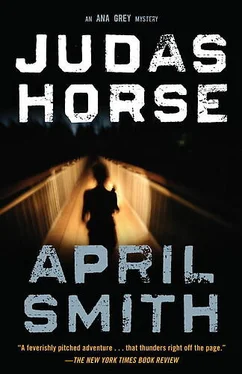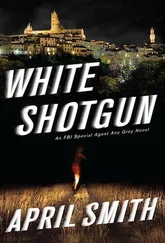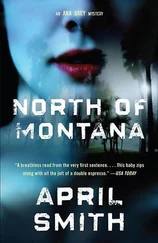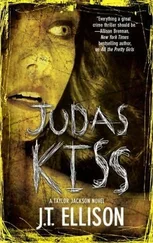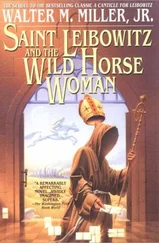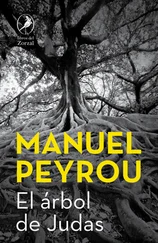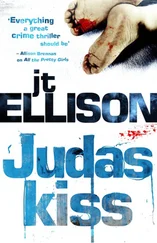The scam sounds too bizarre to be radical propaganda.
“Why isn’t this front-page news?”
“It will be. FAN discovered the paper trail and leaked it to the press. It’ll be up on their Web site.” Two or three Mexican gangbangers jump the bar. Glass shatters with earsplitting blasts as bottles fly off the wall. Omar’s quiets down and roars at the same time — women freeze; men cheer the fight — as Rusty, the friendly bartender, is tossed hand to hand and then trammeled below the mahogany.
“What are they doing?” Megan gasps.
Julius restrains her. “Stay out of it.”
“No! How can you stand there?”
Three on one? My blood is roaring; I’m out of my body with outrage. But this is training: I do not yell “Freeze! FBI.” I do not speed-dial 911. I am a witness.
I see that neither Mr. Terminate nor Julius makes a move to intervene, but watch with calm and unworried expressions, as if this were a regularly scheduled TV show.
Sickening thuds. Someone’s turned up the music.
“This is revolting,” Megan says, breaking from her aging boyfriend and elbowing through the crowd, which has gone frenetic, standing on tables, laughing girls waving beer bottles perched on the shoulders of burly guys, like the place is about to erupt in a massive game of chicken. I scramble along with Megan as she pushes her way behind the bar.
Rusty’s arms are pinned and they’ve got his head in the ice bin. They pull it out by his chin hair, repeatedly smash his nose against the chrome, then plunge him into the ice again. His face is a mass of bruises and splintered bone, teeth are gone, and the ice cache has become a hemoglobin cocktail.
Megan is screaming, “Leave him alone,” trying to pry the Mexicans away. A small one jumps on her back and clings.
I’m saying, “Chill out, brother,” but they laugh, so I get the little monkey dude in a rear chokehold and pull him off Megan and maneuver his flailing body around until I can flip him flat onto the wet wooden joists of the catwalk behind the bar. He lies there, stunned as a fish.
There’s a baton Rusty keeps near the cash register. I’ve got it ready for counterattack, when a big warm hand grabs my wrist. Julius has put himself between them and me.
“Don’t worry yourself. Rusty had it coming.”
I stare at the destroyed face of the barely conscious human being slumped in Megan’s lap on the floor, where she kneels in a nest of broken glass. Her shirt is soaked with his blood. The space looks like Laumann’s mustang slaughterhouse — blood on the mirrors, blood in the drains. The attention of the crowd has shifted to the cash register.
“What’d he do?” I shout.
“He’s a cop,” Julius says, and Rusty awakens just enough to roll an eye toward me, piercing as the bloodred sun.
My grandfather Poppy taught me that everything must be earned. As a lieutenant in the Long Beach police department, he believed in progress through the ranks. But his black-and-white view of the world carried beyond the patrol car, right into our kitchen, where he would subject my young mother and me to sadistic quizzes on current events, or rate her cooking as if he were a restaurant critic.
“Dry as dust,” he’d proclaim about her roast turkey. “You’re stupid,” he’d say, frowning when I failed to name the secretary-general of the United Nations. Give him a sweater for Father’s Day and his face would go into a soft paralysis and his eyes would drift, and he’d give you a neutral “Hmmm.” He literally did not know what to do with a gift.
If you did something bad, like flooding the garage with a garden hose, there would be punishment — washing your mouth out with soap, or making you stand in the scary backyard at night in your pajamas. Like Darcy, I did bad things anyway. Things that tested Poppy’s love against Poppy’s rules. When I was a child, a vein of longing wound through my body, like coveting those ribbons of marshmallow set in chocolate ice cream, and just because he knew I wanted it more than anything, Poppy would never let me have it — no matter how many chances I gave him to say “I was only kidding. You really are okay. Here’s my love, with whipped cream on top.” Screw you, Grandpa.
The girl who used to stand in awe of you was Ana.
At Omar’s Roadhouse, I was Darcy, acting out like crazy. Darcy, all Darcy.
And I liked it.
Donnato tugs his tie loose and drops into a chair. We have met at a seedy motel near the Portland airport.
“Why wasn’t I told there was a Portland police detective working undercover?” “Don’t yell,” he says with a sigh. “I just found out myself. They know Omar’s is a nexus of criminal activity. They’ve had undercovers embedded for years—” I’m pointing a finger, an aggressive habit.
“ Goddamn it, I should have been told!” “Look, Ana, it’s the same old tune. The local cops want our assistance on a task force, and then resent the hell out of it when we show up. The cop goes down,” he says tiredly. “And you throw money?” “They smashed the cash register, so I grabbed a couple of handfuls. It was a diversion. If anyone asks, ‘Who is this new girl in town named Darcy?’ they’ll have an answer. ‘She’s the one who got up on the bar and started throwing cash to the crowd.’ I gave a handful to Megan for the horses.” “Don’t try so hard is what I’m saying.”
“That’s the juice, Mike. Darcy being out there, that’s the key to this new identity. Will Rusty live?” “Yes. Was he helpful?”
“Before he almost died of internal injuries? Yes, he put me in bed with Megan Tewksbury. He knows she’s an activist. That’s why he made a big point of introducing us, even though I had no clue what he was doing at the time. He must have thought I was a real lamebrain fed—” “He accomplished the mission. Calm down. I got Salvador Molly’s.” Donnato opens a fragrant bag of Caribbean takeout. “Have an empanada.” I do not calm down. “What’s going on? You look wasted.”
There are bruised dark circles beneath his eyes, sweat stains on his white shirt. We have met in a neighborhood of unreconstructed streets, dotted with bakeries and thrift stores, in a working-class part of Portland. The Econo Lodge, situated on a gritty avenue of easy-credit used-car lots, is a stucco relic of the sixties weathered to the color of a strawberry milk shake, a couple of salesmen’s hatchbacks parked outside.
You always have to worry about countersurveillance, so I trudged to the top floor carrying an empty suitcase, and casually unlocked room 224. Using an old FBI maneuver, Donnato was set up two doors down in 228. That way, nobody could put us as meeting together. The average bonehead would not realize the rooms were adjoining, because the Bureau had rented all three.
The connecting doors are still open, creating a triplet of empty cubes identically stocked and sanitized, down to the crispy tissue-wrapped plastic cups. Even the daylight looks dry-cleaned.
“My father-in-law threw a blood clot and had another stroke.” “I’m really sorry, Mike. How is he?”
“Back in the hospital. It’s touch and go. We’ve been up all night.” He draws the curtains to discourage telephoto lenses from neighboring rooftops, and turns the clock radio to NPR. Not because he likes their politics but because at this hour they provide a screen of background jabber so nobody can hear us through the walls. With the curtains closed, the place is dark as a theater. Weak pools of light drop from the table lamps like halos.
“I don’t know if we’ve got a cult here, or what,” I tell him. “The female was wearing a triangular silver necklace called a valknot.” “Asatrú,” says Donnato.
Читать дальше
